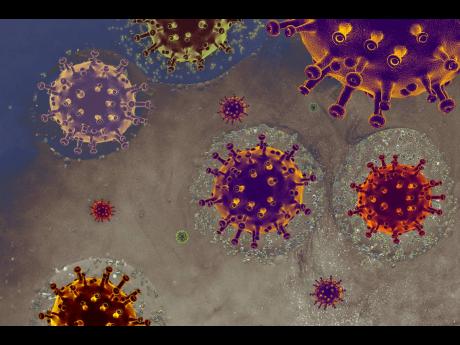Omicron variant: What you need to know
On November 24, a new variant of SARS-CoV-2, B.1.1.529, was reported to the World Health Organization (WHO). This new variant was first detected in specimen collected on November 11 in Botswana and on November 14 in South Africa.
On November 26, 2021, the WHO named the B.1.1.529 ‘Omicron’ and classified it as a variant of concern.
WHAT WE KNOW ABOUT OMICRON
How easily does Omicron spread? The Omicron variant likely will spread more easily than the original SARS-CoV-2 virus, and how easily Omicron spreads, compared to Delta, remains unknown.
The Centers for Disease Control and Prevention (CDC) expects that anyone with Omicron infection can spread the virus to others, even if they are vaccinated or don’t have symptoms.
WILL OMICRON CAUSE MORE SEVERE ILLNESS?
More data are needed to know if Omicron infections, and especially reinfections and breakthrough infections in people who are fully vaccinated, cause more severe illness or death than infection with other variants.
WILL VACCINES WORK AGAINST OMICRON?
Current vaccines are expected to protect against severe illness, hospitalisations, and deaths due to infection with the Omicron variant. However, breakthrough infections in people who are fully vaccinated are likely to occur. With other variants, like Delta, vaccines have remained effective at preventing severe illness, hospitalisations, and death. The recent emergence of Omicron further emphasises the importance of vaccination and boosters.
WILL TREATMENTS WORK AGAINST OMICRON
Scientists are working to determine how well existing treatments for COVID-19 work. Based on the changed genetic make-up of Omicron, some treatments are likely to remain effective, while others may be less effective.
WE HAVE THE TOOLS TO FIGHT OMICRON
Vaccines remain the best public health measure to protect people from COVID-19, slow transmission, and reduce the likelihood of new variants emerging. COVID-19 vaccines are highly effective at preventing severe illness, hospitalisations, and death. Scientists are currently investigating Omicron, including how protected fully vaccinated people will be against infection, hospitalisation, and death. The CDC recommends that everyone five years and older protect themselves from COVID-19 by getting fully vaccinated. The CDC also recommends that everyone age 18 years and older should get a booster shot at least two months after their initial J&J/Janssen vaccine, or six months after completing their primary COVID-19 vaccination series of Pfizer-BioNTech or Moderna.
Masks offer protection against all variants. The CDC continues to recommend wearing a mask in public indoor settings in areas of substantial or high community transmission, regardless of vaccination status.The agency does provide advice about masks for people who want to learn more about what type of mask is right for them, depending on their circumstances.
Tests can tell you if you are currently infected with COVID-19. Two types of tests are used to test for current infection: nucleic acid amplification tests (NAATs) and antigen tests. NAAT and antigen tests can only tell you if you have a current infection. Individuals can use the COVID-19 Viral Testing Tool to help determine what kind of test to seek. Additional tests would be needed to determine if your infection was caused by Omicron. Visit your state, tribal, local, or territorial health department’s website to look for the latest local information on testing.
Self-tests can be used at home or anywhere, are easy to use, and produce rapid results. If your self-test has a positive result, stay home or isolate for 10 days, wear a mask if you have contact with others, and call your healthcare provider. If you have any questions about your self-test result, call your healthcare provider or public health department.
Until we know more about the risk of Omicron, it is important to use all tools available to protect yourself and others.
WHAT CDC IS DOING TO LEARN ABOUT OMICRON
CDC scientists are working with partners to gather data and virus samples that can be studied to answer important questions about the Omicron variant. Scientific experiments have already started.The CDC will provide updates as soon as possible.
Source: Centers for Disease Control and Prevention

